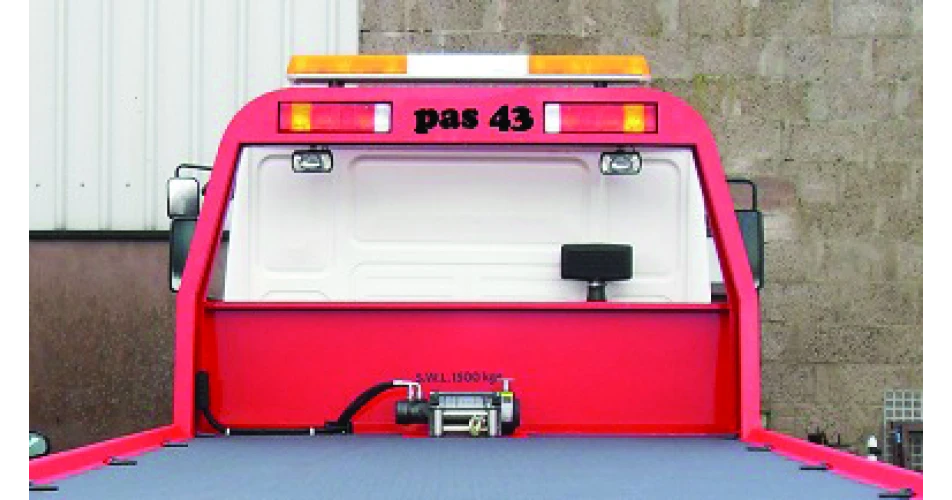PAS43 is a guideline for the safe working of vehicle breakdown, recovery and removal operations. It is published by the British Standard Institution, and although it is not a legal requirement in the Republic of Ireland, there is a groundswell of support for it.
Recovery industry bodies including AVRO and the IFRS, both promote good working practise throughout the industry and as a result, they are driving the initiative for all recovery operators to possess PAS 43 as a minimum requirement.
As in any business, it is important that operators take responsibility for their actions and the actions of their employees. PAS 43:2010 defines minimum levels of competence for those auditing on behalf of Certification or Inspection. To improve the visibility of those operators in possession of a valid PAS 43 certificate, inspection and certification bodies will now publish and maintain details of companies currently holding a valid PAS 43 certificate.
The fact that PAS43 is not officially recognised in Ireland throws up three valid questions. Why would a company want to undertake it, how will it benefit them and finally where does that leave companies in relation to those who don’t invest in it?
Firstly, PAS43 is a working guideline, designed around and evolving with the industry. The fact that it is not officially recognised in Ireland is less to do with its make up and more reflective on the system of legislation approval. If PAS43 was never to become the minimum standard required for the safe working of vehicle breakdown, recovery and removal operations, this would be in name only, as it is accepted that it offers the most comprehensive framework available.
There will always be those in the industry who strive to do the right thing and accept that there will be a cost to this, and there will also always be people who believe that they shouldn’t have to pay for certification and insurances, as long as they can get away with it. It is up to the individual to decide what side of the fence they stand. However, ignorance should never be seen as an excuse.
